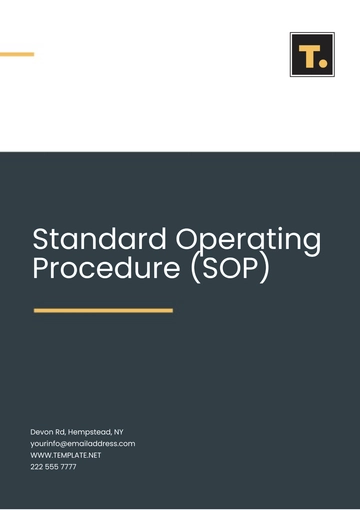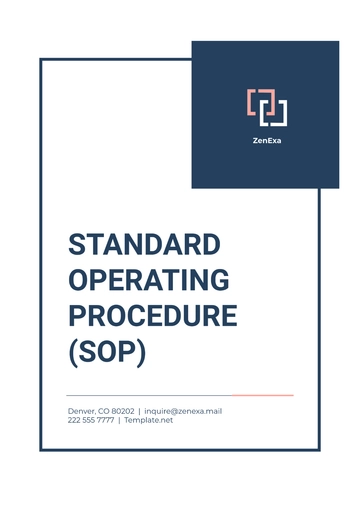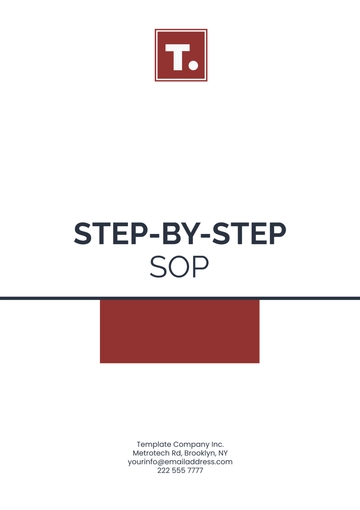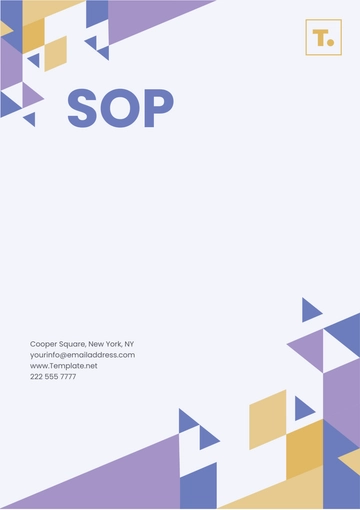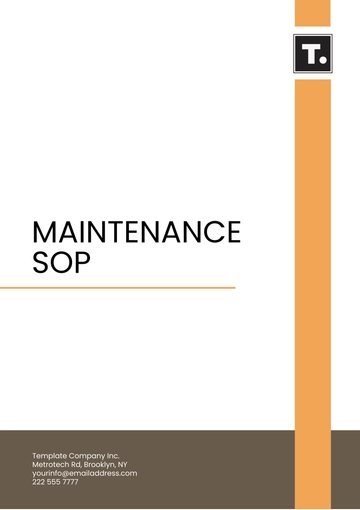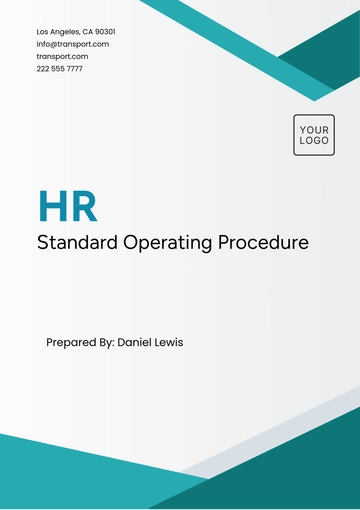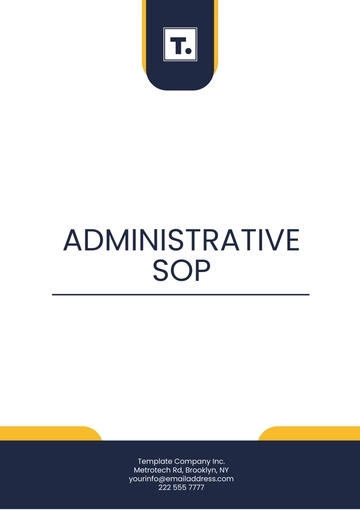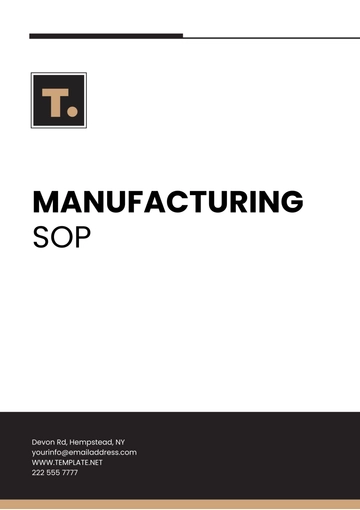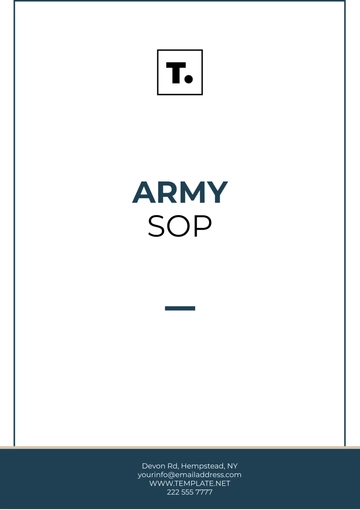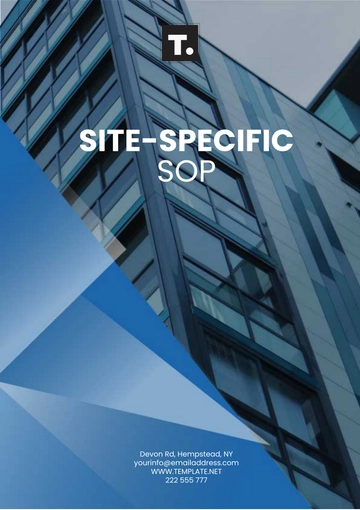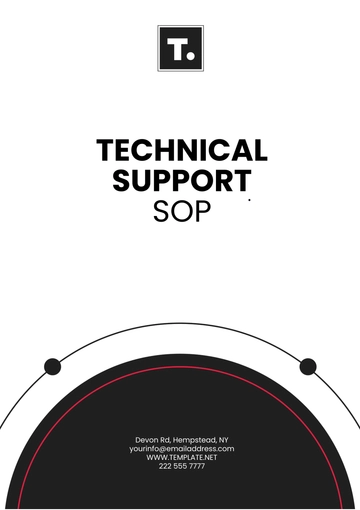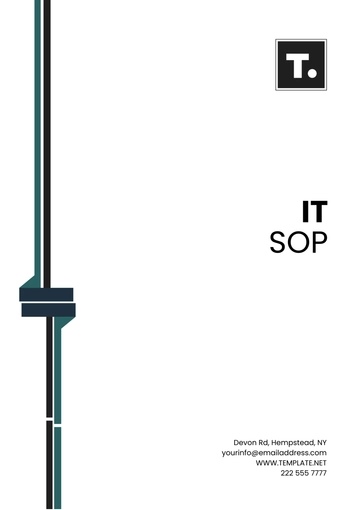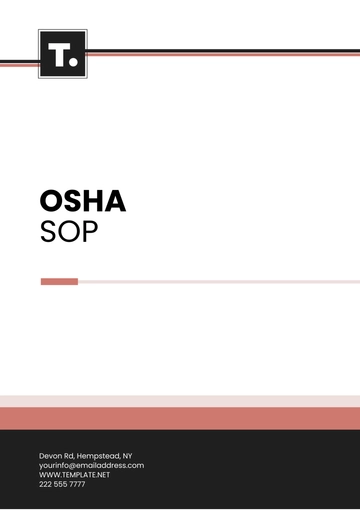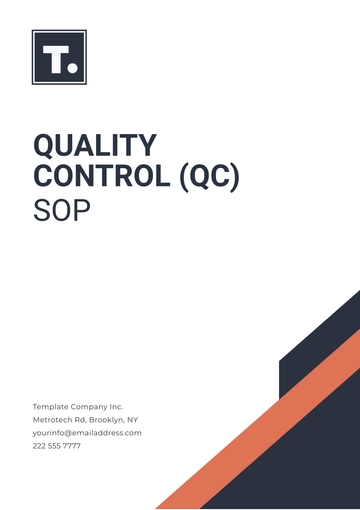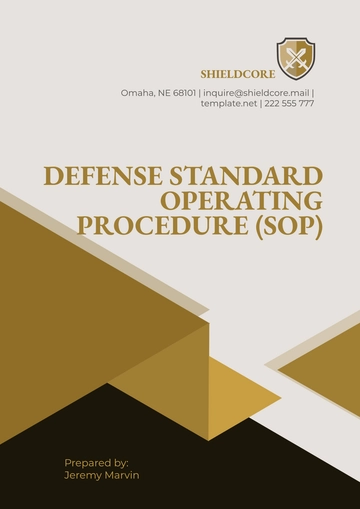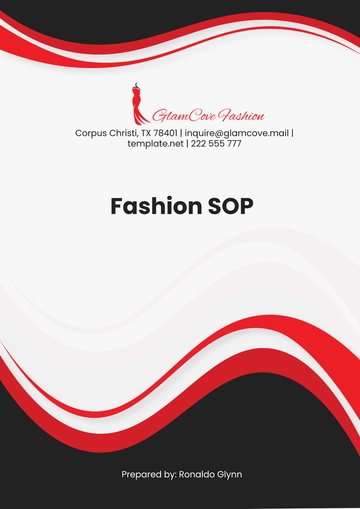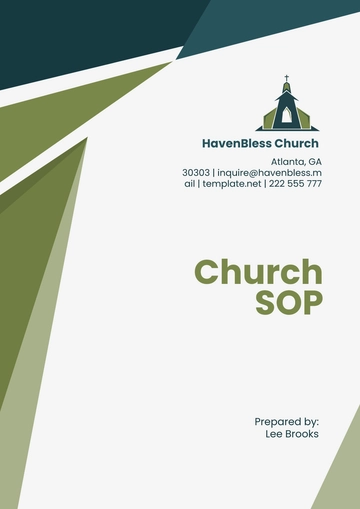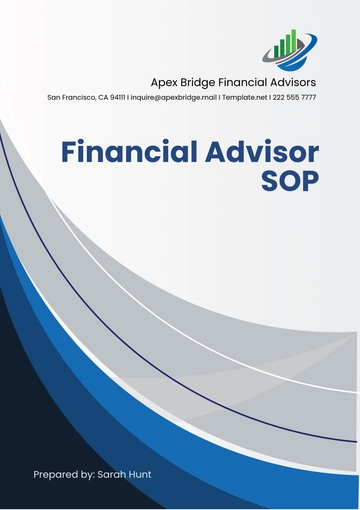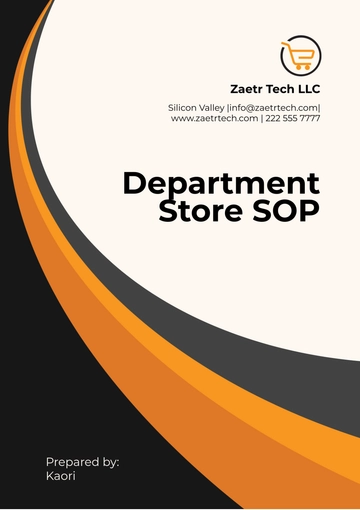Free Travel Agency Sales SOP
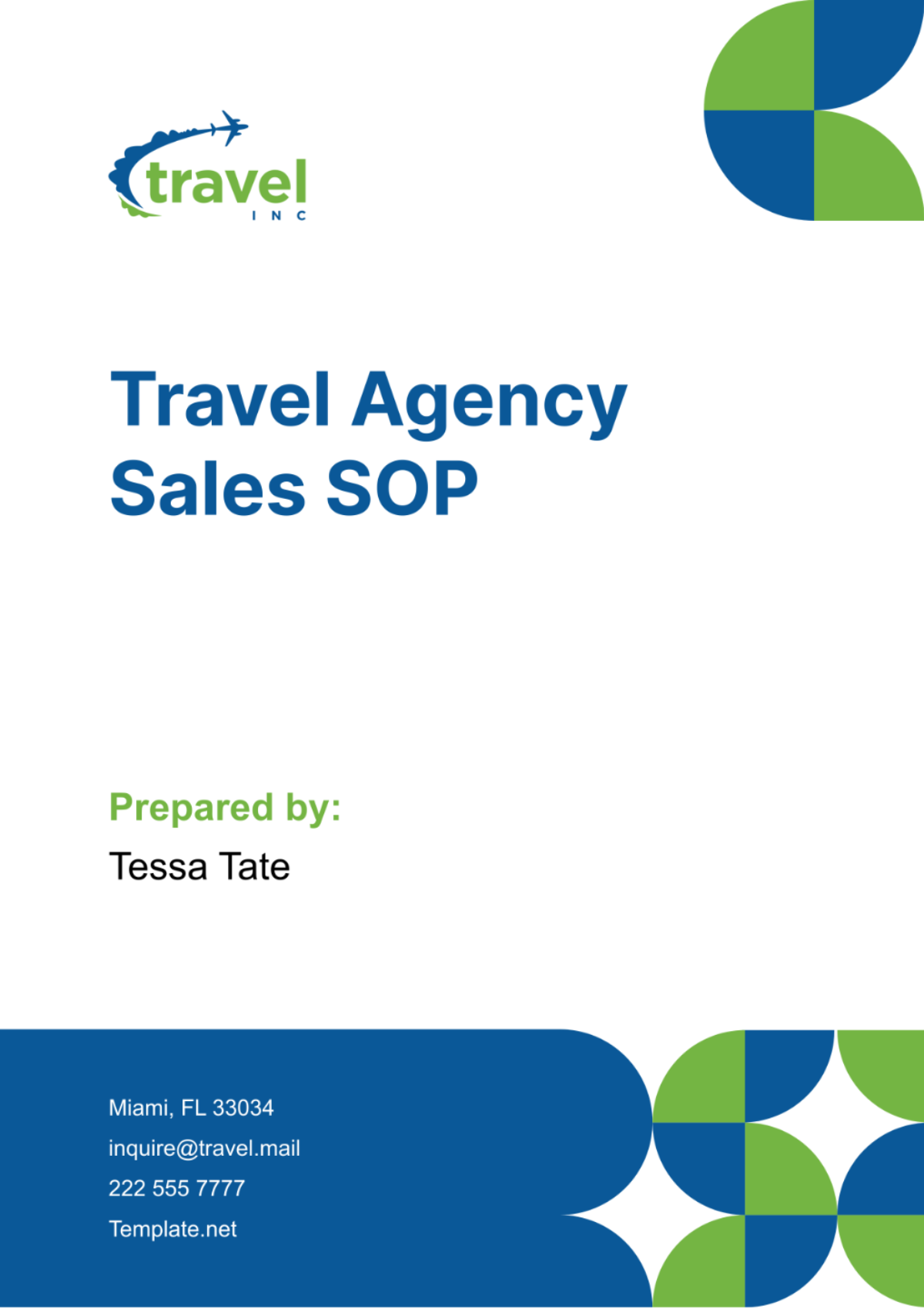
I. Introduction
A. Purpose of the SOP
The purpose of this Standard Operating Procedure (SOP) is to establish standardized guidelines and procedures for the sales team at [Your Company Name] to effectively sell travel services and products to our customers. By following this SOP, our sales staff will ensure consistency, professionalism, and customer satisfaction throughout the sales process.
B. Scope and Applicability
This SOP applies to all sales staff members employed by [Your Company Name], regardless of their position or level of experience. It encompasses all aspects of the sales process, from initial customer interaction to post-sales support and follow-up.
C. Key Objectives
The key objectives of this SOP are to:
Provide clear guidelines for engaging with customers and understanding their needs.
Ensure that sales staff possess comprehensive knowledge of our travel services and products.
Equip sales staff with effective sales techniques for maximizing sales opportunities.
Establish procedures for booking travel arrangements accurately and efficiently.
Define standards for providing excellent customer service and resolving customer issues.
Ensure compliance with legal and regulatory requirements governing travel sales.
Facilitate ongoing training, evaluation, and improvement of sales performance.
II. Customer Interaction Protocol
A. Greeting and Engaging Customers
Sales staff are trained to greet customers warmly and professionally upon their arrival at our office or during initial phone or online interactions. A warm greeting sets the tone for a positive interaction and demonstrates our commitment to excellent customer service. Sales representatives are encouraged to make eye contact, smile, and use the customer's name to personalize the experience.
B. Active Listening Techniques
Sales staff practice active listening skills to understand customers' travel preferences, interests, and budget constraints. By actively listening to customers' needs and desires, sales representatives can tailor their recommendations more effectively and provide solutions that meet or exceed customer expectations. This approach fosters trust and rapport with customers and increases the likelihood of closing a sale.
C. Understanding Customer Needs and Preferences
Sales staff use probing techniques to uncover customers' motivations for travel, such as special occasions, personal interests, or business objectives. By understanding the underlying reasons for their travel, sales representatives can offer personalized recommendations that resonate with customers' desires and aspirations. This personalized approach enhances the customer experience and increases the likelihood of customer satisfaction and repeat business.
D. Building Rapport and Trust
Sales staff focus on building trust and rapport with customers by being transparent, honest, and responsive to their inquiries and concerns. By demonstrating genuine interest in helping customers find the best travel options for their needs, sales representatives establish credibility and earn customers' trust. Building strong relationships with customers encourages loyalty and referrals, contributing to the long-term success of the travel agency.
III. Product Knowledge
A. Destinations and Travel Packages
Sales staff possess comprehensive knowledge of various destinations, including popular tourist attractions, cultural landmarks, and off-the-beaten-path gems. They stay updated on current travel trends and emerging destinations to offer customers the latest and most exciting travel experiences. Whether it's a relaxing beach getaway, an adventurous safari expedition, or a cultural immersion tour, sales representatives can recommend suitable destinations and tailor travel packages to meet customers' interests and preferences.
B. Accommodation Options
Sales staff are familiar with a wide range of accommodation options, including hotels, resorts, vacation rentals, and boutique properties. They understand the unique features and amenities offered by each accommodation type and can recommend options that align with customers' preferences and budgets. Whether customers seek luxury accommodations, budget-friendly stays, or unique lodging experiences, sales representatives can provide personalized recommendations and assist with booking arrangements.
C. Transportation Services
Sales staff have expertise in various transportation services, including flights, trains, cruises, rental cars, and private transfers. They can advise customers on the most convenient and cost-effective transportation options for their travel itineraries, considering factors such as travel dates, destinations, and preferences. Whether customers prefer the convenience of direct flights, the scenic route of a train journey, or the flexibility of a road trip, sales representatives can coordinate transportation arrangements to enhance their travel experience.
D. Special Offers and Promotions
Sales staff stay informed about special offers, promotions, and exclusive deals offered by travel suppliers, including airlines, hotels, tour operators, and cruise lines. They proactively share these promotions with customers to provide added value and savings on their travel bookings. Whether it's discounted airfares, complimentary hotel upgrades, or bonus amenities on cruise vacations, sales representatives can leverage special offers to create enticing travel packages and incentivize bookings.
E. Upcoming Events or Festivals
Sales staff keep abreast of upcoming events, festivals, and seasonal attractions at various destinations worldwide. They can recommend travel itineraries that coincide with these events, allowing customers to immerse themselves in local culture and traditions. Whether it's attending a music festival, experiencing a cultural celebration, or participating in a sporting event, sales representatives can tailor travel packages to provide memorable and enriching experiences for customers.
IV. Sales Techniques
A. Upselling Additional Services or Upgrades
Sales staff employ effective upselling techniques to enhance customers' travel experiences and maximize revenue. They identify opportunities to upsell additional services or upgrades, such as room upgrades, excursions, travel insurance, or premium amenities. By highlighting the value and benefits of these add-ons, sales representatives can increase the overall value of the customer's purchase while meeting their needs and preferences.
B. Cross-Selling Related Products or Packages
Sales staff utilize cross-selling strategies to offer complementary products or services that enhance customers' travel experiences. For example, they may recommend travel accessories, travel insurance, or pre-packaged tours to complement customers' bookings. By cross-selling related products or packages, sales representatives can provide comprehensive solutions that address all aspects of customers' travel needs and preferences, increasing customer satisfaction and loyalty.
C. Handling Objections and Overcoming Resistance
Sales staff are trained to anticipate and address common objections or concerns raised by customers during the sales process. They listen attentively to customers' objections and respond with empathy and understanding. Through effective communication and problem-solving skills, sales representatives can overcome resistance and address customers' concerns, ultimately guiding them towards making informed purchasing decisions.
D. Closing the Sale Effectively
Sales staff employ persuasive closing techniques to secure the sale and finalize booking arrangements. They summarize the key benefits and features of the proposed travel package, reiterate the value proposition, and address any remaining questions or concerns. By confidently asking for the sale and facilitating the booking process seamlessly, sales representatives can create a positive buying experience for customers and ensure successful conversions.
V. Booking Procedures
A. Reservation Process for Accommodations, Transportation, and Activities
Sales staff follow standardized procedures for making reservations for accommodations, transportation, and activities as per customers' preferences and requirements. They enter accurate booking details into the reservation system, including travel dates, room preferences, flight preferences, and any special requests. By meticulously documenting customer preferences and ensuring accurate bookings, sales representatives minimize the risk of errors and enhance the overall customer experience.
B. Ticketing and Issuance of Travel Documents
After confirming bookings, sales staff proceed with ticketing and issuance of travel documents, including e-tickets, hotel vouchers, and tour itineraries. They verify the accuracy of travel documents, including passenger names, travel dates, and itinerary details, to ensure compliance with customer expectations and travel supplier requirements. By providing customers with clear and comprehensive travel documents, sales representatives facilitate smooth and hassle-free travel experiences.
C. Payment Methods and Processing
Sales staff guide customers through the payment process, offering multiple payment options, including credit card payments, bank transfers, or installment plans. They ensure that customers understand the payment terms, including deposit requirements, cancellation policies, and payment deadlines. By providing transparent and flexible payment options, sales representatives facilitate seamless transactions and enhance customer satisfaction.
D. Confirmation and Follow-Up Communication with Customers
Upon completing the booking process, sales staff send confirmation emails or messages to customers, summarizing the details of their bookings and providing contact information for further assistance. They follow up with customers proactively to address any additional questions or concerns and provide updates on their travel arrangements as needed. By maintaining open lines of communication and demonstrating attentiveness to customers' needs, sales representatives reinforce trust and confidence in the travel agency's services.
VI. Customer Service Standards
A. Providing Assistance and Support Throughout the Customer Journey
Sales staff are committed to providing exceptional customer service and support at every stage of the customer journey, from initial inquiry to post-trip follow-up. They offer personalized assistance and guidance, addressing customers' inquiries, requests, and concerns promptly and effectively. By prioritizing customer satisfaction and comfort, sales representatives ensure a positive and memorable travel experience for every customer.
B. Resolving Customer Complaints and Issues Promptly
In the event of customer complaints or issues, sales staff respond promptly and professionally, acknowledging the customer's concerns and taking proactive steps to resolve the issue to the customer's satisfaction. They document the details of the complaint and escalate unresolved issues to the appropriate department or management for further resolution. By demonstrating empathy, accountability, and a commitment to problem-solving, sales representatives turn negative experiences into opportunities to enhance customer loyalty and trust.
C. Soliciting Feedback and Reviews
Sales staff actively seek feedback from customers regarding their travel experiences, soliciting reviews and testimonials to gauge satisfaction levels and identify areas for improvement. They provide customers with channels to submit feedback, such as online surveys, feedback forms, or direct communication with sales representatives. By listening to customer feedback and incorporating suggestions for improvement, sales representatives demonstrate a commitment to continuous improvement and customer-centricity.
D. Post-Trip Follow-Up and Loyalty Programs
After customers return from their travels, sales staff follow up with them to inquire about their trip experiences, gather feedback, and express appreciation for their business. They may also inform customers about exclusive loyalty programs, discounts, or special offers available for repeat bookings. By nurturing ongoing relationships with customers and rewarding loyalty, sales representatives encourage repeat business and referrals, contributing to the long-term success and growth of the travel agency.
VII. Documentation and Record-Keeping
A. Maintaining Accurate Records of Customer Interactions and Bookings
Sales staff diligently record details of customer interactions, including inquiries, preferences, and booking transactions, in the agency's CRM (Customer Relationship Management) system. They ensure that customer information is kept up-to-date and accessible to authorized personnel for reference and follow-up. By maintaining accurate records, sales representatives facilitate effective communication and coordination among team members and provide a seamless experience for customers across multiple touchpoints.
B. Storing Sensitive Customer Information Securely
Sales staff adhere to strict protocols for handling and safeguarding sensitive customer information, including personal data, payment details, and travel preferences. They store customer data securely in compliance with data protection regulations, such as GDPR (General Data Protection Regulation), to protect customer privacy and confidentiality. By implementing robust security measures and access controls, sales representatives mitigate the risk of data breaches and unauthorized access to customer information.
C. Compliance with Data Protection Regulations
Sales staff are trained on data protection regulations and privacy policies governing the collection, use, and storage of customer data. They adhere to established procedures for obtaining customer consent, handling sensitive information, and ensuring data accuracy and integrity. By maintaining compliance with data protection regulations, sales representatives uphold the trust and confidence of customers and safeguard the reputation of the travel agency.
D. Reporting and Auditing Procedures
Sales staff participate in regular audits and reviews of sales activities and documentation to ensure compliance with internal policies and regulatory requirements. They provide accurate and timely reports on sales performance, booking metrics, and customer feedback to management for analysis and decision-making. By conducting thorough audits and reviews, sales representatives identify areas for improvement and implement corrective actions to enhance operational efficiency and effectiveness.
VIII. Compliance and Legal Requirements
A. Licensing and Accreditation Requirements for Travel Agencies
Sales staff are aware of the licensing and accreditation requirements applicable to travel agencies operating in their jurisdiction. They ensure that the travel agency maintains valid licenses and certifications from relevant authorities, such as IATA (International Air Transport Association) or ASTA (American Society of Travel Advisors), to conduct business legally and ethically. By staying compliant with licensing requirements, sales representatives uphold industry standards and demonstrate credibility and trustworthiness to customers and partners.
B. Insurance Coverage for Travel Services
Sales staff understand the importance of insurance coverage for protecting customers and the travel agency against unforeseen events, such as trip cancellations, medical emergencies, or travel disruptions. They educate customers about the benefits of travel insurance and offer optional insurance coverage as part of the booking process. By promoting travel insurance options, sales representatives help customers mitigate risks and enjoy peace of mind during their travels.
C. Compliance with Industry Regulations
Sales staff adhere to industry regulations and guidelines governing travel sales, including consumer protection laws, advertising standards, and pricing regulations. They ensure that all promotional materials and advertisements are truthful, accurate, and compliant with regulatory requirements. By maintaining compliance with industry regulations, sales representatives build trust and credibility with customers and demonstrate integrity and professionalism in their sales practices.
D. Ethical Guidelines for Sales and Marketing Practices
Sales staff conduct sales and marketing activities in accordance with ethical principles and best practices, avoiding deceptive or misleading practices that could harm customers' interests. They prioritize transparency, honesty, and integrity in their interactions with customers, providing accurate information and clear terms and conditions. By adhering to ethical guidelines, sales representatives uphold the reputation and integrity of the travel agency and foster trust and loyalty among customers.
IX. Training and Development
A. Onboarding Process for New Sales Staff
Sales staff undergo a comprehensive onboarding process upon joining the travel agency, which includes orientation sessions, product training, and shadowing experienced team members. They receive training on sales techniques, customer service standards, booking procedures, and compliance requirements to ensure they are equipped with the knowledge and skills necessary to succeed in their roles. By investing in thorough onboarding, the travel agency sets new sales staff up for success and promotes a culture of excellence from the outset.
B. Ongoing Training and Professional Development Opportunities
Sales staff participate in ongoing training and professional development activities to enhance their skills, knowledge, and performance. They have access to regular training sessions, workshops, webinars, and online courses covering various topics related to sales, customer service, product knowledge, and industry trends. By continuously investing in training and development, the travel agency empowers sales staff to stay updated on the latest practices and innovations and deliver exceptional service to customers.
C. Knowledge Sharing and Best Practices Within the Team
Sales staff engage in knowledge sharing sessions and collaborative discussions to exchange ideas, insights, and best practices within the team. They share success stories, challenges, and lessons learned from their experiences to inspire and motivate their colleagues. By fostering a culture of knowledge sharing and collaboration, the travel agency promotes continuous learning and improvement among sales staff and strengthens team cohesion and effectiveness.
D. Performance Evaluation and Feedback Mechanisms
Sales staff undergo regular performance evaluations and receive constructive feedback from their supervisors or managers. They set performance goals, track their progress, and receive guidance and support to address areas for improvement. By providing ongoing feedback and coaching, the travel agency helps sales staff identify their strengths and weaknesses, develop their skills, and achieve their full potential.
X. Performance Metrics and Evaluation
A. Key Performance Indicators (KPIs) for Sales Effectiveness
Sales staff are evaluated based on key performance indicators (KPIs) related to sales effectiveness, such as sales revenue, conversion rates, average transaction value, and customer satisfaction scores. They track their performance against these metrics and strive to meet or exceed performance targets set by the travel agency. By focusing on KPIs, sales staff align their efforts with organizational goals and drive continuous improvement in sales performance.
B. Monitoring and Analyzing Sales Data
Sales staff analyze sales data, booking metrics, and customer feedback to identify trends, patterns, and opportunities for improvement. They leverage data analytics tools and reports to gain insights into customer preferences, market trends, and competitive dynamics. By leveraging data-driven insights, sales staff make informed decisions, optimize sales strategies, and identify areas for growth and innovation.
C. Evaluating Customer Satisfaction and Retention Rates
Sales staff monitor customer satisfaction and retention rates through post-sales surveys, reviews, and feedback mechanisms. They assess customers' overall experience with the travel agency, including the booking process, travel arrangements, and post-trip support. By measuring customer satisfaction and retention, sales staff identify areas for improvement and implement strategies to enhance customer loyalty and repeat business.
D. Continuous Improvement Initiatives Based on Performance Insights
Sales staff collaborate with management and cross-functional teams to implement continuous improvement initiatives based on performance insights and feedback. They identify opportunities to streamline processes, enhance service quality, and innovate sales strategies to drive business growth and customer satisfaction. By embracing a culture of continuous improvement, the travel agency remains agile, adaptive, and responsive to evolving customer needs and market dynamics.
XI. Continuous Improvement Initiatives
A. Identifying Areas for Process Improvement and Innovation
Sales staff actively identify areas within the sales process that could be improved or optimized to enhance efficiency, productivity, and customer satisfaction. They gather feedback from customers, analyze sales data, and collaborate with cross-functional teams to identify pain points, bottlenecks, and opportunities for innovation. By embracing a culture of continuous improvement, sales staff drive organizational growth and competitiveness by streamlining processes, reducing costs, and enhancing the customer experience.
B. Implementing Changes to Enhance Sales Efficiency and Customer Satisfaction
Sales staff collaborate with management and relevant stakeholders to implement changes and initiatives aimed at enhancing sales efficiency and customer satisfaction. They prioritize initiatives that address customer pain points, streamline processes, and improve service quality. By implementing changes iteratively and systematically, sales staff ensure that improvements are sustainable and aligned with the travel agency's strategic objectives.
C. Gathering Feedback from Customers and Staff
Sales staff proactively gather feedback from customers and staff to identify areas for improvement and innovation. They leverage various feedback channels, such as surveys, focus groups, and one-on-one interviews, to solicit insights and suggestions for enhancing the sales process and customer experience. By listening to the voices of customers and staff, sales staff gain valuable insights that inform decision-making and drive continuous improvement efforts.
D. Benchmarking Against Industry Standards and Best Practices
Sales staff benchmark the travel agency's sales practices and performance against industry standards and best practices to identify opportunities for improvement and innovation. They study market trends, competitor strategies, and industry benchmarks to gain insights into emerging trends and leading practices. By benchmarking against industry peers and leaders, sales staff set ambitious goals, drive performance improvement, and position the travel agency for long-term success and competitiveness.
XII. Conclusion
A. Summary of Key Points
In summary, this Travel Agency Sales SOP provides comprehensive guidelines and procedures for sales staff to effectively sell travel services and products, from customer interaction to post-sales support and continuous improvement. By following the SOP, sales staff ensure consistency, professionalism, and customer satisfaction throughout the sales process, contributing to the success and growth of the travel agency.
B. Importance of Adhering to the SOP
Adhering to this SOP is critical for maintaining high standards of service quality, compliance, and professionalism in sales operations. It ensures that sales staff are equipped with the knowledge, skills, and resources necessary to meet customer needs and expectations effectively. By following standardized procedures and best practices outlined in the SOP, sales staff uphold the reputation and credibility of the travel agency and foster trust and loyalty among customers.
C. Commitment to Ongoing Improvement and Excellence in Sales Practices
The travel agency is committed to ongoing improvement and excellence in sales practices, as reflected in this SOP. We recognize the importance of continuously monitoring performance, gathering feedback, and implementing changes to enhance sales efficiency, customer satisfaction, and business success. By embracing a culture of continuous improvement, we strive to exceed customer expectations, drive innovation, and maintain our position as a leading provider of travel services and experiences.
- 100% Customizable, free editor
- Access 1 Million+ Templates, photo’s & graphics
- Download or share as a template
- Click and replace photos, graphics, text, backgrounds
- Resize, crop, AI write & more
- Access advanced editor
Manage your travel agency's sales process efficiently with the Travel Agency Sales SOP Template from Template.net. This editable and customizable SOP template is designed to streamline your operations and enhance customer satisfaction. Utilize the AI Editor Tool to tailor the SOP to your agency's unique needs and ensure consistency in sales practices.
